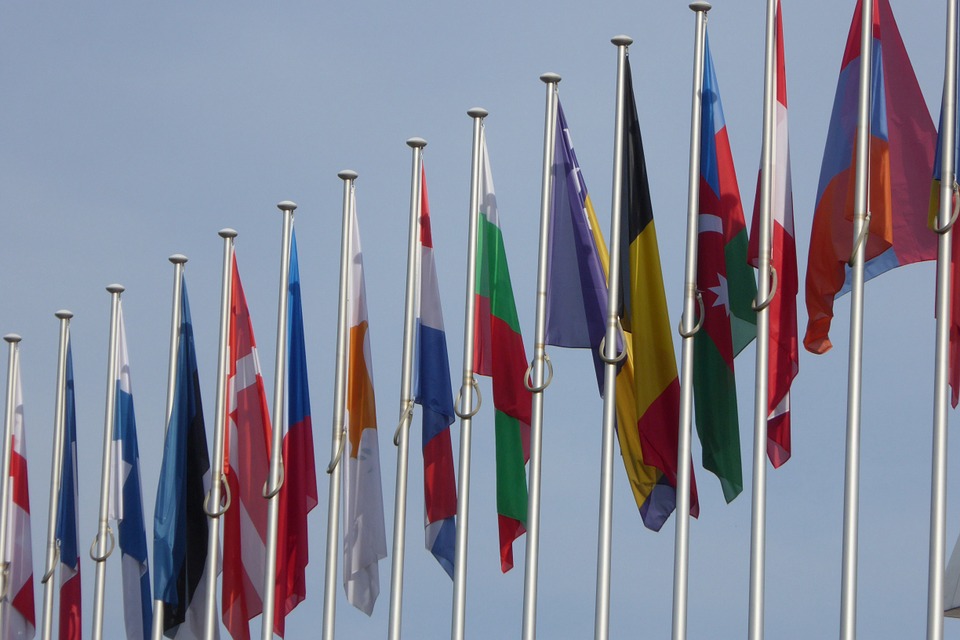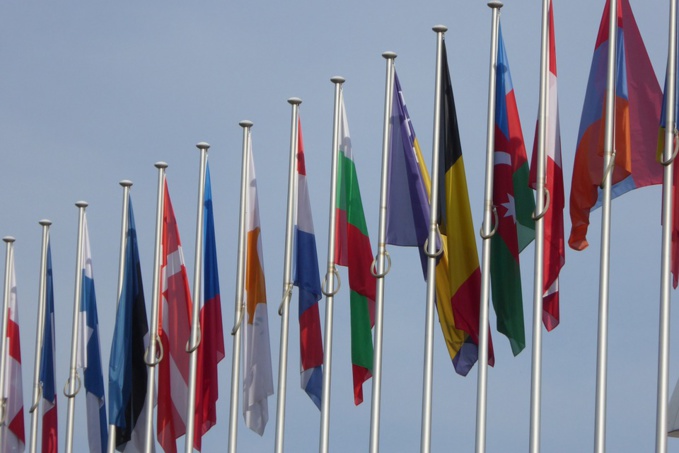Donald Trump coming to power in 2017 demonstrated a new yawning gap in the American model. Once again, all this points to the need to enhance the role of Europe, especially since development of alternative models (China, Russia) does not inspire much optimism.
Main challenges
If Europe wants to meet expectations, it will have to cope with a multitude of challenges. First of all, we are talking about the general problem of growing inequality in connection with globalization. Europe will not be able to reassure citizens that the situation on the continent is better than in the US and Brazil. Inequalities are growing in all countries. Fiscal competition, which Europe still exacerbates, only contributes to this. The risks of self-isolation and the logic of scapegoats can only be dealt with if the authorities can offer the common people and young generations a real strategy to reduce inequality and investment in the future.
The second challenge concerns a tragic split to the north and south, which has seriously worsened in the euro area and relies on a contradictory view of events. In Germany and France, we continue to believe that we helped the Greeks because we lent them money at a rate that is lower than what they could get in the financial markets, but above the rates on our own loans to them. Greece, the event is perceived in a completely different way, considering it primarily as a profitable financial transaction. In fact, the purge imposed on Southern Europe with dramatic consequences in Catalonia is a direct consequence of myopic Franco-German selfishness.
The third challenge is a split between east and west. Paris, Berlin and Brussels do not understand the ingratitude of countries that have received large financial tranches. Yet, Warsaw and Prague see everything differently. They emphasize that it was necessary to pay a high price for private investments from the west and that now the flow of profits of owners of private enterprises is much larger than the European funding going in the opposite direction.
And the numbers don’t lie. After the dissolution of the communist system, Western investors (especially the Germans) gradually became owners of a large part of the former eastern bloc’s capital: about a quarter, if we talk about all capital (including real estate), and more than half if we limit ourselves to enterprises (especially large ones). Filip Novokmet’s work showed that the smaller increase in inequality in Eastern Europe compared to Russia or the United States can be explained by the fact that a significant part of the income from Eastern European capital goes abroad (roughly the same thing happened before communism, when the capital belonged to the Germans and The French, as well as the Austrians and Ottomans).
For the period from 2010 to 2016, the outflow of income and profits from ownership (net of incoming flows) averaged 4.7% of GDP in Poland, 7.2% in Hungary, 7.6% in the Czech Republic and 4.2% in Slovakia , having reduced in the same volume the national income of these countries.
Fixing inequality
At the same time, net transfers from the EU, that is, the difference between spending and revenues to the European budget, were much less significant: 2.7% of GDP in Poland, 4% in Hungary, 1.9% in the Czech Republic and 2.2% in Slovakia (we recall that France, Germany and the United Kingdom are donors of the EU budget at the level of 0.3-0.4% of their GDP).
Here you can argue that Western investment has allowed to raise the productivity of the designated economies and, therefore, played into the hands of all. Nevertheless, the East European leaders do not miss the opportunity to recall that investors abuse their position of power in order to reduce salaries and keep maximum profit for themselves.
Judging by the Greece’s example, the dominant economic powers only consolidate inequality: all are based on the principle that the market and "free competition" lead to a fair distribution of wealth. Therefore, the transfer of funds that were obtained as a result of such a "natural" balance , is seen as a manifestation of generosity by those who benefit from the system. In fact, property relations are still very complex, especially in large political entities like the EU, and cannot be regulated only by the mercy of the market.
source: lemonde.fr
Main challenges
If Europe wants to meet expectations, it will have to cope with a multitude of challenges. First of all, we are talking about the general problem of growing inequality in connection with globalization. Europe will not be able to reassure citizens that the situation on the continent is better than in the US and Brazil. Inequalities are growing in all countries. Fiscal competition, which Europe still exacerbates, only contributes to this. The risks of self-isolation and the logic of scapegoats can only be dealt with if the authorities can offer the common people and young generations a real strategy to reduce inequality and investment in the future.
The second challenge concerns a tragic split to the north and south, which has seriously worsened in the euro area and relies on a contradictory view of events. In Germany and France, we continue to believe that we helped the Greeks because we lent them money at a rate that is lower than what they could get in the financial markets, but above the rates on our own loans to them. Greece, the event is perceived in a completely different way, considering it primarily as a profitable financial transaction. In fact, the purge imposed on Southern Europe with dramatic consequences in Catalonia is a direct consequence of myopic Franco-German selfishness.
The third challenge is a split between east and west. Paris, Berlin and Brussels do not understand the ingratitude of countries that have received large financial tranches. Yet, Warsaw and Prague see everything differently. They emphasize that it was necessary to pay a high price for private investments from the west and that now the flow of profits of owners of private enterprises is much larger than the European funding going in the opposite direction.
And the numbers don’t lie. After the dissolution of the communist system, Western investors (especially the Germans) gradually became owners of a large part of the former eastern bloc’s capital: about a quarter, if we talk about all capital (including real estate), and more than half if we limit ourselves to enterprises (especially large ones). Filip Novokmet’s work showed that the smaller increase in inequality in Eastern Europe compared to Russia or the United States can be explained by the fact that a significant part of the income from Eastern European capital goes abroad (roughly the same thing happened before communism, when the capital belonged to the Germans and The French, as well as the Austrians and Ottomans).
For the period from 2010 to 2016, the outflow of income and profits from ownership (net of incoming flows) averaged 4.7% of GDP in Poland, 7.2% in Hungary, 7.6% in the Czech Republic and 4.2% in Slovakia , having reduced in the same volume the national income of these countries.
Fixing inequality
At the same time, net transfers from the EU, that is, the difference between spending and revenues to the European budget, were much less significant: 2.7% of GDP in Poland, 4% in Hungary, 1.9% in the Czech Republic and 2.2% in Slovakia (we recall that France, Germany and the United Kingdom are donors of the EU budget at the level of 0.3-0.4% of their GDP).
Here you can argue that Western investment has allowed to raise the productivity of the designated economies and, therefore, played into the hands of all. Nevertheless, the East European leaders do not miss the opportunity to recall that investors abuse their position of power in order to reduce salaries and keep maximum profit for themselves.
Judging by the Greece’s example, the dominant economic powers only consolidate inequality: all are based on the principle that the market and "free competition" lead to a fair distribution of wealth. Therefore, the transfer of funds that were obtained as a result of such a "natural" balance , is seen as a manifestation of generosity by those who benefit from the system. In fact, property relations are still very complex, especially in large political entities like the EU, and cannot be regulated only by the mercy of the market.
source: lemonde.fr



















